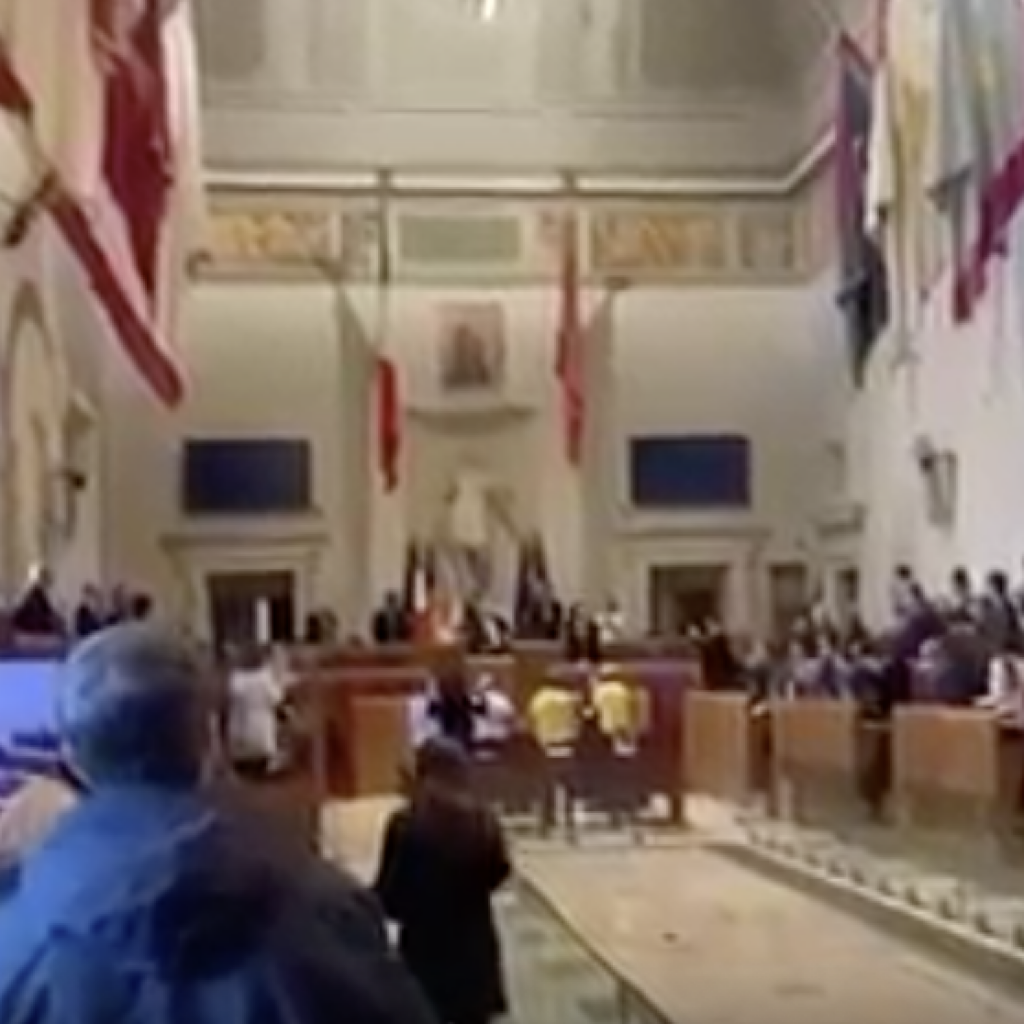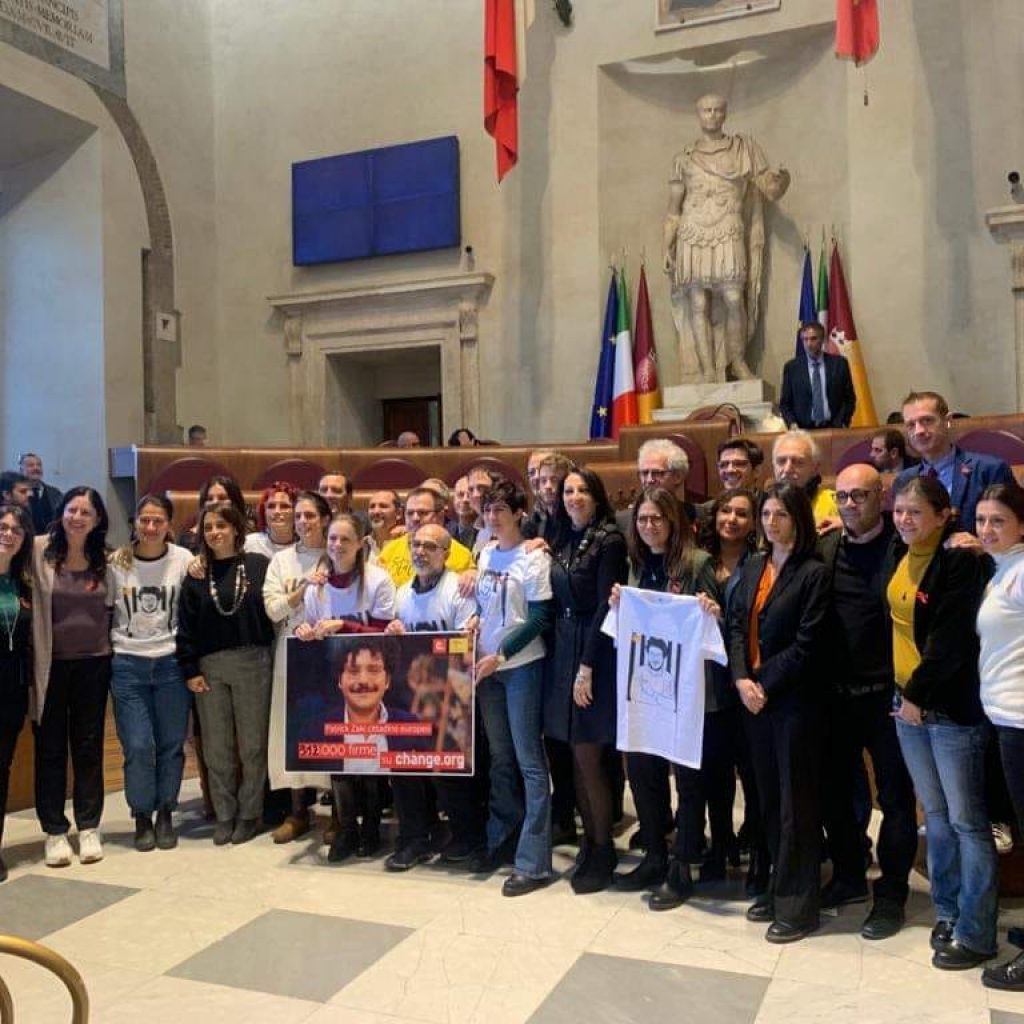Egyptian activist Zaki silenced with years-long legal battles – By Deutsche Welle – In the case against human rights activist Patrick Zaki, yet another hearing has adjourned — with still no end in sight.
When Patrick Zaki got to his car to drive the 130 kilometers (81 miles) from Cairo to the court in Mansoura on Tuesday morning, the political activist described a sinking feeling ahead of the eighth hearing against him.
“Every time another hearing approaches, it feels like getting too close, reliving that ordeal,” the 31-year-old human rights activist wrote in Arabic on his Facebook page ahead of the drive.
With ordeal, the Coptic Christian is referring to the 22 months he spent in pre-trial detention for spreading “false news” after publishing an article about the repression of Egyptian Coptic Christians on the Daraj online platform in 2019.
Similarly to his previous seven hearings, the judge again asked him on Tuesday if he took part in spreading false news in Egypt and abroad. “As before, I said no,” Zaki told DW in a phone interview after the trial.
The public prosecutor was of a different opinion. “He said that there is no discrimination of the Christian minority, that we have equal rights and he closed his argument by asking the judge to give me the maximum penalty without mercy,” Zaki said.
If convicted, Zaki would face up to five years of imprisonment.
But before Zaki was able to mount his legal defense, the hearing was adjourned for three months to February 2023 — just like in the seven past instances.
Zaki’s lengthy trial is not unique in Egypt. Political observers and human rights organizations have recognized a pattern behind the growing number of prolonged trials in the country. And it seems to be a new strategy to quell dissent.
Freed, but not free
“My package of freedom has been renewed for another quarter of a year, like a phone plan,” said Zaki.
Only, he doesn’t feel free. “I can’t finish my degree in Italy due to the travel ban that was put on me, and I can’t sign a work contract either since I never know what is going to happen in three months’ time,” he said.
Instead, he has been freelancing for a human rights organization, the Egyptian Initiative for Personal Rights. “But I only published two pieces, since my legal team is constantly worried that I could anger the prosecution even more,” he said.
Meanwhile, his university in Bologna and human rights organizations are supporting him with campaigns.
“Patrick George Zaki is a prisoner of conscience who must be unconditionally released as he is prosecuted solely for exercising his right to freedom of expression,” Souleimene Benghazi, a regional campaigner at Amnesty International, told DW.
In turn, Amnesty has been calling on the Egyptian authorities to drop the charges against Zaki, lift the travel ban and allow him to travel back to Italy to pursue his studies.
DW asked the public prosecution in Mansoura for a statement, but had not received a response by the time of publication.
Popular strategy
“The fact that this politicized trial [against Zaki] is ongoing is also a message for everyone who dares to speak up: Their life can be caught up with years in jail, travel bans and politicized prosecutions,” said Amr Magdi, a Human Rights Watch researcher.
This view is echoed by Timothy Kaldas, a policy fellow at the Tahrir Institute for Middle East Policy. For him, it’s obvious that pending cases are strategic decisions.
“Keeping people charged with political crimes in limbo is part of the government’s strategy to both reduce external pressure on Egypt over the political cases while preventing them [the accused parties] from being free to pursue their lives,” he said.
A similar example is the case of the investigative journalist and director of the Egyptian Initiative for Personal Rights, Hossam Bahgat. Staff for the human rights organization were arrested after briefing a group of Western ambassadors in the fall of 2020.
“They were eventually released with charges pending, after enormous pressure from Western capitals,” said Kaldas, adding, “They weren’t free in 2020 and they’re still not free today.”
They currently still face charges, are banned from traveling and their assets remain frozen.
“Releasing them from prison allowed the Egyptian authorities to end international pressure on the case while leaving open the threat of rearresting the human rights defenders they wish to intimidate and silence,” Kaldas explained.
_______________
City Council of Rome Grants Zaki Honorary Citizenship
On his Facebook page, Patrick Zali said:
Today the City Council of Rome voted to grant me honorary citizenship, and this happens a few days after the postponement of my trial hearing as a sort of demonstration of support towards me and proof of their interest for the file of human rights and defenders of human rights in the world.

To clarify: Honorary nationality is an honorary procedure adopted by city officials in honor of a person who has made an effort in a specific file or to deliver a message of support considering it frog part of their city but that doesn’t mean that I have acquired the nationality of the country or my legal position has changed”.
For me to achieve honorary citizenship of the oldest European city is a great honor, and I believe it is a message of support for myself and all those working in the field of human rights in Egypt. I’m here, but I’m still holding on to the hope of returning to my studies in Italy as soon as possible.

Finally, I thank the Municipality of Rome and I am grateful for the agreement of all the voting participants, regardless of their political affiliation, to grant me honorary citizenship.




